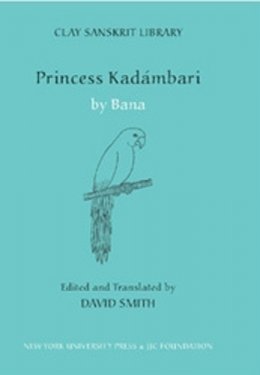
Stock image for illustration purposes only - book cover, edition or condition may vary.
Princess Kadambari
Bana
FREE Delivery in Ireland
Description for Princess Kadambari
Hardback. A sanskrit poet Bana's achievement. Translator(s): Smith, David. Series: Clay Sanskrit Library. Num Pages: 520 pages, black & white tables. BIC Classification: 2AB; 2BBA; DCF. Category: (G) General (US: Trade); (P) Professional & Vocational; (UF) Further/Higher Education. Dimension: 169 x 115 x 25. Weight in Grams: 380.
No Sanskrit poet is more interesting, original, or greater than Bana. His prose poem Princess Kadámbari is his supreme achievement. His patron, King Harsha, ruled much of northern India from 606 to 647 CE from his capital at Kannauj. Princess Kadámbari, a work of fiction set in keenly observed royal courts, has everything. A love story doubled and redoubled in rebirth, the romance was so influential that its title became the word for a novel in some modern Indian languages. In free form verse, the experimental poem embodies enormous originality. Animals, flowers and mythology, as well as humans are presented in sympathetic detail. The complex coherent structure will culminate in a breathtaking conclusion. The two love affairs that dominate the poem have not yet begun in this first volume, where we hear of rituals to obtain a son, and the upbringing of a prince. Altogether the reader is given perhaps the fullest presentation of classical India available in a single work.
Product Details
Publisher
New York University Press
Series
Clay Sanskrit Library
Place of Publication
New York, United States
Shipping Time
Usually ships in 15 to 20 working days
About Bana
George David Smith is Clinical Professor of Economics, Entrepreneurship, and Innovation and is Academic Director of the Executive MBA degree programs at New York University’s Stern School of Business.
Reviews for Princess Kadambari
"Small, elegant books, beautifully printed, sparsely annotated, and bilingual...This arrangement naturally delights students of Sanskrit, who may dispense,at least temporarily, with their dictionaries and grammar books; but you do nothave to know Sanskrit to enjoy reading these volumes." The New Republic

